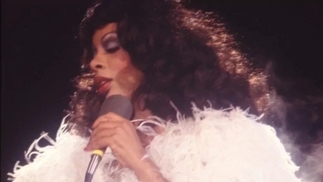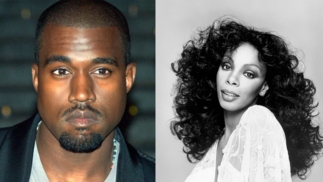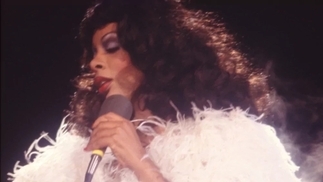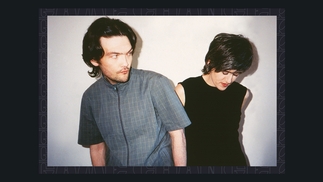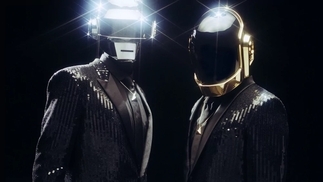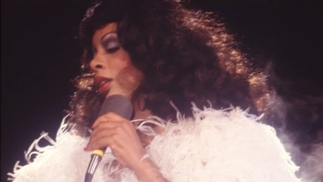GAME CHANGERS: GIORGIO MORODER'S ' I FEEL LOVE'
DJ Mag talks to electronic music legend Giorgio Moroder about producing this enduring, game-changing disco classic...
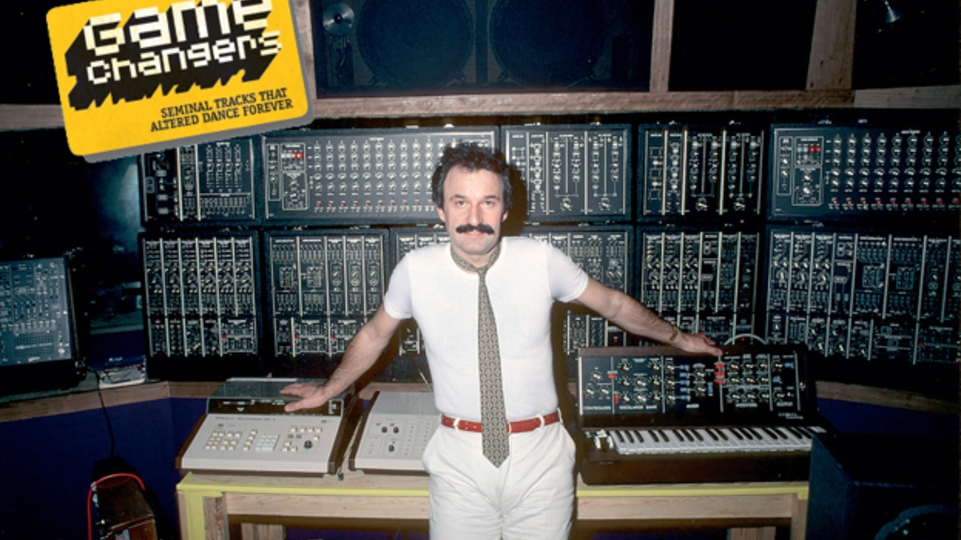
One of the most prolific and pioneering electronic music composers of the '70s and '80s, Giorgio Moroder was born in Italy and started playing guitar in a jazz band at the age of 16. “I was a musician for more than 10 years with a small group,” he tells DJ Mag, backstage at the Top 100 DJs party where he was presenting the No.1 award. “Touring as a musician was a nice life but I thought I might end up at 50 or 60 and still playing the clubs, so I thought I should become a composer.
I was offered an engineer job in Berlin, and started working in studios.” He did some moderately successful solo stuff and started making his name as a producer, learning the new technology and recording a lot of synthesiser music. Giorgio tells how he blew his first producer’s royalty cheque “in a big champagne evening. I was so excited, suddenly the bill was 10 thousand and then I found out I wasn’t getting paid for two more years!
He met an Englishman called Pete Bellotte, who became his co-producer, and in 1971 they co-wrote the song ‘Son of My Father’. “That was the first pop song using a synthesiser,” claims Giorgio. “I gave the tapes to a publisher friend of mine, she went to England and presented it to a publishing guy called Roger Easterby. Immediately, the same day, he went to the studio with a group called Chicory Tip, and it became No.1. Basically, they stole it. In America, my version got into the Top 100 but didn’t do too well.”
Unfazed, Giorgio produced another couple of hits for Chicory Tip and then met a black American singer who had been touring a production of Hair: the Musical around Germany. “I used Donna Summer and two English girls to do background [vocals] at first, and she obviously had a beautiful voice,” says Giorgio. “So Pete Bellotte and I had an idea of doing a song called ‘The Hostage’. Donna was extraordinarily good, a great lyricist.”
This Donna Summer single did well initially, but just as they were about to perform it on a big TV show, says Giorgio, the Director of the Deutsche Bank was killed by hostage-takers holding him captive. “So the song died. But then I said, ‘Whenever I have a great singer, I should do a sex song’!” he continues, smirking. “I told Donna to come up with an idea, so she came a week later with her idea for ‘Love To Love You Baby’. At that time I had a studio [Musicland in Munich], but I would rent it out and at that time the Rolling Stones were in — or it may have been Deep Purple, one of the big guys. But that day was empty, so I went down to the studio with Donna and we did the basics.

”They recorded the rest of the disco track with musicians a couple of days later and completed the three-minute single version. “A friend of mine took it to MIDEM and called me back saying ‘Everybody loves it’,” Giorgio recalls. “Then I went to America and presented it to Neil Bogart at Casablanca, and he loved it,” Giorgio continues. “A week or two later he called me one night and told me that he was at a party — he was at an orgy, that’s what I heard later — and the girls wanted to hear the song over and over. He called me at three o’clock at night and told me to record the song extended. And that was the first extended song ever.”
One of the first 12-inch singles, clocking in at 17 minutes, the orgasmic ‘Love To Love You Baby’ was a smash in the discos in 1975 and in the pop charts in its neutered three-minute version. But how did Giorgio get Donna to do ‘the sexy orgasmic bit’? “At the beginning it was a little bit of a fun thing, I said to her ‘Look, we can’t just have the song going “Love to love you baby”, you have to give me a little more,” Giorgio says. “So after half an hour she started to moan a little bit, but she was not ready. So I threw everybody out.
“Her husband was there, Pete Bellotte, the sound engineer, one or two friends, and I said ‘OK’. We turned all the lights down and she just did it. I think she did one track, and she moaned for like 10 minutes. I think she had an orgasm! I’m not sure though, I could see her, but not that well. Then I cut it in.”
The track was a smash, but still followed the basic orchestral tenets of disco. With his next single with Donna, however, Giorgio would really change the game. “With ‘I Feel Love’, I wanted to do a sound of the future,” Giorgio explains. “How could a song sound in 10 years? So I did some research, I looked into musique concrete and I couldn’t find anything.
Then I listened to a Star Wars scene, the one where the musicians are in the cantina and I thought, ‘This is not the song of the future’. So I said the only way to do it was to use only synthesisers.” Giorgio explains how he started with a Moog Modular and put in eight notes. “The tuning was hell at the time, after 20 seconds it was out of tune, so I would play [sings half the ‘I Feel Love’ bassline] dunng-dunng-dunng-dunng-dunng-dunng-dunng-dunng, and then when it was out of tune I’d start it again.
” He added some white noise, hi-hat, snare, bass drum and keys to the track — all using a synthesiser. “Then, when we mixed it in New York, the engineer — instead of putting in reverb — did a delay, and suddenly it sounded ‘duddle-luddle-umm-da-duddle-luddle-umm-da’. It was a revelation, that was it.”
Little did Giorgio know that he’d effectively kick-started Eurodisco and helped lay the template for trance, techno and much of modern-day dance music. Brian Eno, hearing the record in Berlin on its 1977 release, in the middle of recording the ‘Berlin Trilogy’ of albums with David Bowie, said to Bowie: “This single is going to change the sound of club music for the next 15 years”. Which was more or less right.
“I knew that it was definitely a sound which had never been [heard] before,” Giorgio tells DJ Mag. “I just didn’t know that it would have that big of an impact. In fact, in America at the beginning, the song didn’t do that well. But it started to do really well in Europe, especially in England, and then it came back in the States. We went to No.2 or No.3 there, whereas in England it went to No.1.”
Most disco tracks up until 1977 were made with orchestras or with a live band like Chic and Earth, Wind & Fire, but from ‘I Feel Love’ onwards Giorgio was just using synths — by himself. The parallels with DJ/producers today are obvious. ‘I Feel Love’ became an enduring anthem in the gay clubs way beyond its release, and in the mid-‘80s UK synth-poppers Bronski Beat released a version with Marc Almond, formerly of Soft Cell. “I liked their version, Jimmy Somerville told me that ‘Love To Love You Baby’ was the reason he started singing falsetto,” Giorgio says.
Read virtually any copy of DJ Mag today and some reviewer will invariably refer to a “Moroder bassline” on a trance, breakbeat or nu disco track. “Once you hear it, it’s difficult to find a better line,” says Giorgio, modestly. ‘I Feel Love’ has subsequently been re-packaged, covered and re-released umpteen times since, and has sold over a million copies in the UK alone. Giorgio went on to work with The Three Degrees, Sparks, David Bowie, Blondie, Japan and many other acts, and produced award-winning movie soundtracks for Midnight Express, American Gigolo, Scarface, Flashdance and The Never Ending Story amongst many more. After a successful solo career, Donna Summer, sadly, died last year.
A few years ago Giorgio was mainly playing golf with his wife, semi-retired, but then he had lunch with Daft Punk in Paris and they asked him to come to their studio to tell his story. That track became ‘Giorgio By Moroder’, one of the standout tracks on ‘Random Access Memories’, and now — as well as producing again — Giorgio has started DJing himself — at the age of 73. “I lurrrrrve it,” he purrs.
